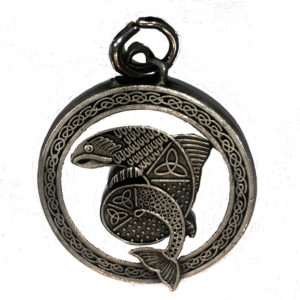Fáilte (Welcome) › Forums › General Discussion (Irish and English) › Adjectival Suffix Question
- This topic has 4 replies, 1 voice, and was last updated 10 years, 11 months ago by
Murchadh.
-
AuthorPosts
-
May 16, 2013 at 7:53 pm #36543
Murchadh
ParticipantIt occurred to me recently that the adjectival suffix -(a)idhe is probably just a form of the suffix -dha (/-da/-tha/-ta) which developed after unstressed vowels*:
e.g. eagna + -dha = eagnadha > eagnaidhe (just as the plural suffix -adha became /i:/),
and after consonant clusters** with an epenthetic vowel:
e.g. Críost (+ a) + -dha = Críostadha > Críostaidhe.(*With nouns which have/had cases ending in -dh the form used is -ta, e.g. file (fileadh, filidh) – fileata.
**The consonant clusters are sometimes formed through syncope, e.g. talamh – talmhaidhe.I’d imagine the development of simplidhe (etc.?) was influenced by adjectives of this type.)
Is this right?
May 17, 2013 at 6:30 pm #43964Murchadh
ParticipantThanks for the response.
Yes, broad -(e)adha would generally become /u:/ but frequently didn’t, the best example of which is the old plural suffix -(e)adha > -(a)idhe > -(a)í. Interestingly, this developed as /u:/ after certain words in Mayo (“The Irish of Erris, Co. Mayo” pg. 191).
I mentioned simplidhe as I’m unaware of any earlier form like “simpil” or “simple” to which the suffix could have been added. It’s possible the existence of adjectives ending in /i:/ influenced the form the loan word took in Irish, or that the suffix was added as it was adopted.
May 17, 2013 at 10:25 pm #43967Murchadh
ParticipantIt could have influenced it at least, I suppose, but I can’t think of any case of an English adverb becoming an adjective in Irish.
Knowing when the word entered Irish would be useful. McBain (under “silpidh“) and the DIL aren’t much help.According to “The Irish of Erris” it’s a small group of nouns ending in /-É™/ that form the plural with /-u:/. The examples given are: cleite, faithne, gearr-chaile, gloine, leithe, reithe, seithe & sine.
It does seem to be a Connacht feature, I found no mention of it in “Gaeilge Theilinn”May 18, 2013 at 6:27 pm #43972Murchadh
ParticipantMy point was I can’t think of any case of the borrowing of an English “-ly” adverb and it’s use as an adjective ending in “-lidhe”/“-lí”.
I’d forgotten about /-u:/ in terminations of that kind. Is the final “-aí” a third plural suffix or simply the change of final /É™/ to /i:/ so common in Connacht?
May 19, 2013 at 6:00 pm #43976Murchadh
ParticipantInteresting. Thanks for that.
-
AuthorPosts
- You must be logged in to reply to this topic.
